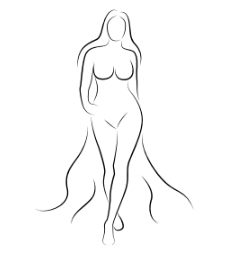Mindful Drinking
Rethinking Having Just One More
Have you ever found yourself drinking more than intended, only to regret it the next day?
A Fun Night of Excess
It had been a long week, and as Friday evening arrived, my husband suggested we unwind by exploring a new restaurant’s happy hour. Eager for a change of pace, we found ourselves at the bar, where the ambiance was lively and the deals enticing. Spotting a favorite—a Smoky Old Fashioned priced at just $8, a rare find in South Florida—I couldn’t resist. The generous pour set a relaxed tone, leading us to extend our stay for dinner.
Opting for a bottle of wine to accompany our meal seemed economical at the time. As the evening unfolded, indulgence took the reins; the meal was delightful, and any lingering stress melted away. An unusual craving for dessert—ice cream, no less—hinted at my altered state. Back home, the coziness of the couch and the allure of Netflix quickly lulled me into slumber, requiring multiple nudges to make it to bed.
The next morning, I woke up sluggish, my mind foggy, and my body yearning for recovery. My usual vibrant energy was conspicuously absent, replaced by a profound sense of regret and self-reflection.
Unpacking the Hangover: Lessons from a Night of Excess
Hangovers are rare for me, occurring perhaps once or twice a year. Yet, this recent experience prompted me to examine how alcohol affects my body on a cellular level, particularly in relation to nutrition and overall well-being. I began to ponder:
- Nutrient Absorption: How does alcohol interfere with my body’s ability to absorb essential vitamins and minerals vital for energy and health?
- Cellular Metabolism: In what ways does alcohol disrupt cellular processes, leading to fatigue and diminished vitality?
- Long-Term Health Implications: Could occasional overindulgence contribute to more significant health issues over time, affecting organs like the liver and brain?
These reflections led me to explore the broader impacts of alcohol on our bodies, particularly as we age and strive to maintain our vibrancy.
1. Understanding Hangovers: The Body’s Response to Excess
A hangover is the body’s way of signaling that it has been taxed beyond its comfort zone. The unpleasant symptoms we experience are manifestations of several physiological responses:
- Dehydration:
Alcohol acts as a diuretic, increasing urine production and leading to dehydration. This loss of fluids can result in symptoms such as thirst, dizziness, and that notorious pounding headache.
- Gastrointestinal Disturbances:
Alcohol irritates the stomach lining and increases acid production, leading to nausea, vomiting, and stomach discomfort. These issues hinder nutrient absorption, further sapping our energy levels.
- Immune System Response: Alcohol can trigger inflammation, causing brain fog, memory issues, and an overall sense of malaise.
Reflective Questions:
How do I typically feel the day after consuming alcohol?
Have I noticed patterns in my body’s reactions to drinking?
2. Alcohol’s Impact on the Body’s Repair Mechanisms
Regular alcohol consumption can impede the body’s natural ability to heal and maintain itself:
- Nutrient Absorption: Alcohol damages the cells lining the stomach and intestines, leading to deficiencies in essential nutrients like thiamine, vitamin B12, folic acid, and zinc.
- Energy Depletion: The body prioritizes metabolizing alcohol over other nutrients, diverting energy from essential bodily functions, resulting in fatigue and decreased performance.
Reflective Questions:
Have I observed changes in my energy levels or overall health related to my drinking habits?
In what ways might alcohol be affecting my body’s ability to repair and rejuvenate?
3. Striking a Balance: Physical Coordination and Sensible Consumption
Mindful alcohol consumption is key to maintaining both physical and lifestyle balance:
- Physical Coordination: Alcohol affects the brain’s cerebellum, responsible for coordinating movement and balance, leading to impaired coordination during and after drinking.
- Moderation Guidelines: For women, moderate drinking is typically defined as up to one drink per day. However, individual tolerance levels vary, and it’s essential to listen to your body and make choices that align with your health goals.
Reflective Questions:
How does alcohol consumption impact my physical balance and coordination?
What personal guidelines can I set to ensure my drinking habits align with my health objectives?
4. Alcohol’s Effects on Skin Health
Our skin, often reflective of our internal health, can be significantly affected by alcohol consumption:
- Dehydration and Premature Aging: Alcohol dehydrates the body and skin, leading to dullness and accelerating wrinkle formation.
- Inflammation and Skin Conditions: Alcohol can trigger inflammation, worsening conditions like acne, rosacea, and psoriasis.
Reflective Questions:
Have I noticed changes in my skin’s appearance that might be linked to alcohol consumption?
How important is maintaining healthy skin to my overall sense of well-being and confidence?
5. Cognitive Impairment Linked to Alcohol
Alcohol consumption can have profound effects on cognitive functions:
- Memory and Learning: Chronic excessive alcohol intake is associated with cognitive decline and neuropsychiatric complications.
- Risk of Dementia: Regular excessive drinking increases the risk of alcohol-related brain damage (ARBD) and dementia.
- Brain Structure Changes: Even moderate alcohol consumption has been linked to reductions in brain gray matter volume.
Reflective Questions:
Have I experienced changes in my memory or cognitive abilities that might be related to my alcohol consumption?
How important is maintaining cognitive health to my overall quality of life?
Embracing Inner Wisdom: A Path to Vibrancy
As Vibrant Sages, we stand at a pivotal juncture where our choices profoundly influence our present well-being and future vitality. Reflecting on our relationship with alcohol offers an opportunity to align our actions with our aspirations for a vibrant life.
Empowering Steps Toward Mindful Drinking:
- Set Clear Intentions: Define your reasons for adjusting drinking habits—whether for health, energy, or presence.
- Educate Yourself: Understanding the effects of alcohol on the aging body empowers better choices.
- Explore Alternatives: Try non-alcoholic beverages like herbal teas or sparkling water with citrus.
- Engage in Social Activities: Seek gatherings that don’t center around alcohol, like book clubs or nature walks.
- Practice Mindfulness: Tune into your body’s signals and honor its needs.
- Seek Support: Connect with friends or support groups to encourage mindful drinking.
Reflective Questions:
What small changes can I implement today to align my drinking habits with my health objectives?
How can I celebrate milestones in reducing alcohol consumption?
Here’s to a journey of self-discovery, empowerment, and enduring vibrancy. Cheers to a life of balance and radiance!
References
Effects of Alcohol on Memory (2024). Wikipedia. Available at: https://en.wikipedia.org/wiki/Effects_of_alcohol_on_memory
Alzheimer’s Society. Alcohol and the Risk of Dementia. Available at: https://www.alzheimers.org.uk
Daviet, R. et al. (2022). Associations Between Alcohol Consumption and Brain Matter Volume. Nature. Available at: https://www.nature.com/articles/s41467-022-28735-5















